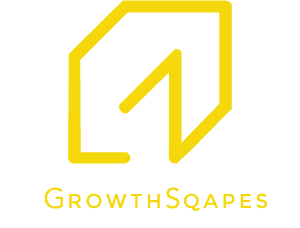With VUCA/BANI becoming an established business-environmental monster that assumes myriad unpredictable forms, it is but obvious that businesses seek effective leaders who can lead with an eye on the future. If leadership is role centric then leadership effectiveness is habit centric. Habits which come from a certain depth of character, habits which build trust, habits which inspire and habits which contribute to the purpose or the cause of organization development.
So, what are habits?
A set of behaviors and acts done over and over again become habits. Habits are powerful forces in our lives. As the old much cliched adage goes, “ first you make your habits and then your habits make you”. So aptly put! Leaders are defined by their habits, both the good and the not-so-good ones. Furthermore, for leaders who play a strategic role or are involved in strategic thinking, their habits have the potential to alter the course of the organization they lead.
Let’s look at the top 4 habits that effective leaders practice to leave an indelible impression on the organizations they lead. It is ultimately these habits that improve their leadership effectiveness.
Building trust by jumping in first
People want to trust leaders to lead the way. They trust what they see leaders do and not just say.
Average leaders tend to make mistakes here. They believe that merely inspiring or influencing people with a passionate speech is enough to move them to action. But it rarely does so, at least not for long as rhetoric is not as powerful as action.
Effective leaders habitually practice proactive actions that build trust and set examples.
They convince people to do something by showing them how to do – by jumping in first and then inviting people to join them. They know that to build trust they need to be the first one to jump in the water to see how cold it feels. If they need to cut everyone’s pay, they cut their own pay first. They make the first sacrifice. These trust building actions begets trust and act as great examples of coaching.
Encouraging people to share constructive criticism
No leader can grow if no one shows them where they need to change. It’s painful on one’s pride, but if one is going to fix some habits then one needs other people to show them the mirror every now and then. It’s not fun to hear about how one is falling short, but it’s necessary if one wants to grow. Effective leaders are those people who are high on emotional intelligence and who practice the habit of being open to a two-way communication. They allow people to show them where they lack and what can be done to change that. They proactively seek constructive criticism and do not misunderstand that or take offense. Their feedback seeking habit is a result of the belief that feedback is the breakfast for champions.
Expecting resistance to their ideas
Ineffective leaders wrongly assume that if they did everything “right”, people would get on board with the leader’s vision and get to work. But that’s not how human nature works. There will always be resistance and often it may have nothing to do with the leader’s ideas.
Effective leaders expect this resistance. They don’t pretend that it won’t happen to them and they don’t get discouraged when they face resistance. They inculcate a healthy habit of facing resistance proactively and overcoming that through more powerful habits instead of feeling buried in internal conflict. Their operating mindset is that strength in thinking actually comes from the diversity in thinking. This habit further opens the doors for collaboration.
Practicing reflection
Being a leader can become a daily chore of checking off tasks and fighting fires. And along the way, one can get burned out. To cure this, leaders need to take a pit stop in their leadership journey and consider how they are feeling.
The most effective leaders regularly set aside time to check-in with themselves. They ask themselves how they’re really feeling and remind themselves of the reason they became a leader. This habit of practicing regimented reflection makes them stronger. It acts as their inner lighthouse that navigates their leadership behaviours. Additionally, as a bonus, taking time away from focusing on a problem often becomes the key to problem solving.
Considering the importance of habits in shaping one’s leadership profile, any short-term leadership training or long-term leadership development initiative, whether it is aimed at first time managers or middle managers, is likely to be ineffective if it does not focus on building habits.
This blog is written by Rupender Singh Khaira, an Associate Partner with Growthsqapes.

